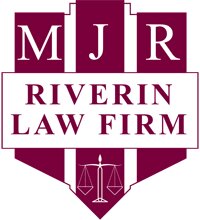Best Project Finance Lawyers in Canada
Share your needs with us, get contacted by law firms.
Free. Takes 2 min.
Or refine your search by selecting a city:
List of the best lawyers in Canada
About Project Finance Law in Canada
Project finance is a specialized area of law that facilitates the funding of large, capital-intensive infrastructure and industrial projects. In Canada, project finance plays a crucial role in enabling advancements in sectors such as energy, transportation, natural resources, and public-private partnerships. Rather than relying on the balance sheet of project sponsors, project finance is typically secured by the future cash flow generated by the project itself. This structure involves complex contractual frameworks, risk allocation, and compliance requirements unique to Canadian jurisdictions.
Why You May Need a Lawyer
Engaging a lawyer with experience in project finance is critical due to the complexity and scale of these transactions. You may need legal assistance in situations such as:
- Structuring and negotiating project and financing agreements
- Navigating regulatory approvals and compliance requirements
- Due diligence on project assets, risks, and parties involved
- Advising on public-private partnership frameworks
- Drafting and reviewing contracts such as construction, operation, and joint venture agreements
- Managing lender and investor relationships
- Addressing environmental law considerations and indigenous rights
- Mitigating risks and resolving disputes as projects progress
Local Laws Overview
Canadian project finance operates within a regulatory environment defined by both federal and provincial legislation. Key legal aspects include:
- Permitting and regulatory compliance at municipal, provincial, and federal levels
- Environmental assessment and impact review processes
- Contractual frameworks for public-private partnerships (PPPs)
- Security interests and collateral arrangements under the federal Bank Act and provincial Personal Property Security Acts (PPSAs)
- Taxation laws, including those related to investment structures and revenue streams
- Indigenous consultation obligations under Section 35 of the Constitution Act
- Foreign investment rules and review processes under the Investment Canada Act
Compliance with these and other regulations is essential to the success and legal sustainability of any project finance initiative in Canada.
Frequently Asked Questions
What is project finance?
Project finance is a method of financing large infrastructure or industrial projects by structuring the loan repayment primarily based on the future cash flows generated by the project, rather than the creditworthiness of the project sponsors.
Who are the main parties involved in a project finance transaction?
The key participants typically include project sponsors, lenders (such as banks and institutional investors), contractors, government agencies, and sometimes equity investors or public-private partners.
What industries in Canada use project finance most often?
Project finance is commonly used in sectors such as energy (including renewables), transportation, mining, utilities, and large-scale public infrastructure projects.
What are public-private partnerships (PPPs) in project finance?
PPPs are arrangements where the public sector partners with private entities to finance, build, and operate infrastructure projects, sharing risks and benefits according to negotiated agreements.
How are environmental considerations addressed in Canadian project finance?
Projects must comply with federal and provincial environmental laws, including environmental assessments and obtaining necessary permits. Additional obligations may also apply concerning indigenous consultation and rights.
How is risk typically allocated in project finance deals?
Risks are assessed and apportioned through detailed contracts, with responsibilities assigned among sponsors, contractors, operators, and sometimes government entities, to minimize the potential for disputes or financial losses.
What kind of security do lenders require in project finance transactions?
Lenders usually require security interests over project assets, contracts, accounts, and revenue streams. These arrangements are governed by the Personal Property Security Acts (PPSAs) and in some instances, the federal Bank Act.
Are foreign investors allowed to participate in Canadian project finance?
Yes, but foreign investment may be subject to review under the Investment Canada Act and other applicable legislation, especially for projects in sensitive sectors or of significant economic importance.
What due diligence is necessary before participating in a project finance transaction?
Due diligence routinely covers title and ownership, regulatory compliance, financial projections, project feasibility, contractual obligations, environmental issues, and assessments of all involved parties.
How do I resolve disputes that arise during the course of a project?
Dispute resolution mechanisms are typically stipulated in contracts and may involve negotiation, mediation, arbitration, or litigation, with the assistance of legal counsel specializing in project finance and construction law.
Additional Resources
For more information and assistance on project finance in Canada, consider consulting the following organizations and governmental bodies:
- Canadian Bar Association - Business and Infrastructure Law sections
- Infrastructure Canada
- PPP Canada (part of the Government of Canada’s PPP expertise)
- Provincial ministries responsible for infrastructure and energy
- Industry associations such as the Canadian Council for Public-Private Partnerships
- Regulatory agencies overseeing environmental and permitting compliance
- Local legal aid societies or referral services for initial consultations
Next Steps
If you require legal advice in project finance, consider the following steps:
- Identify the nature and scale of your project, and clarify your role (sponsor, investor, contractor, etc.)
- Research law firms and lawyers with expertise in project finance and relevant industry knowledge
- Prepare detailed information about your project goals, timelines, and any concerns or questions
- Schedule an initial consultation to assess your legal needs and receive tailored guidance
- Review the engagement terms carefully before retaining legal counsel
- Work collaboratively with your lawyer to ensure compliance, proper risk allocation, and successful project delivery
Taking these steps will help ensure your project is structured efficiently, legally compliant, and well positioned for success.
Lawzana helps you find the best lawyers and law firms in Canada through a curated and pre-screened list of qualified legal professionals. Our platform offers rankings and detailed profiles of attorneys and law firms, allowing you to compare based on practice areas, including Project Finance, experience, and client feedback.
Each profile includes a description of the firm's areas of practice, client reviews, team members and partners, year of establishment, spoken languages, office locations, contact information, social media presence, and any published articles or resources. Most firms on our platform speak English and are experienced in both local and international legal matters.
Get a quote from top-rated law firms in Canada — quickly, securely, and without unnecessary hassle.
Disclaimer:
The information provided on this page is for general informational purposes only and does not constitute legal advice. While we strive to ensure the accuracy and relevance of the content, legal information may change over time, and interpretations of the law can vary. You should always consult with a qualified legal professional for advice specific to your situation.
We disclaim all liability for actions taken or not taken based on the content of this page. If you believe any information is incorrect or outdated, please contact us, and we will review and update it where appropriate.
Browse project finance law firms by city in Canada
Refine your search by selecting a city.















